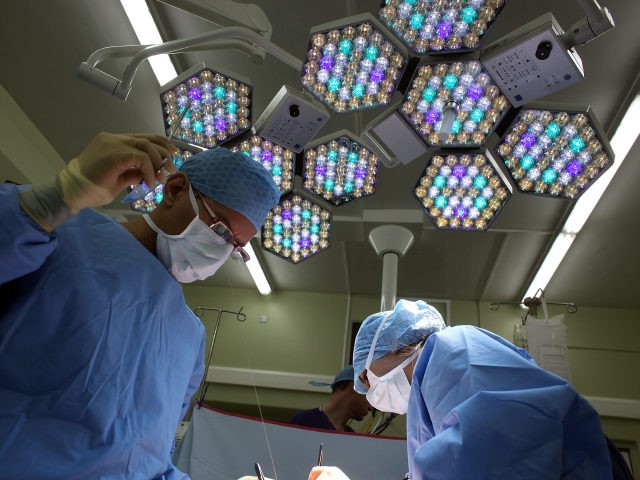The disruption of the coronavirus pandemic has resulted in fewer urgent cancer referrals in England, meaning that cases could be caught too late and result in survival rates “going backwards”, according to a report.
A study of NHS England data by the Institute for Public Policy Research (IPPR) had found that GPs made 1.85 million urgent cancer referrals between March 2020, at around the time of the first lockdown, and January 2021. Compared to 2.2 million referrals made in the same period the year before, that represents a 16 per cent drop or some 350,000 people.
The proportion of cancers diagnosed at the stage when they were still highly curable also fell from 44 per cent to 41 per cent, according to a Times report from Sunday.
During that timeframe, urgent referrals for suspected lung cancer, the most deadly form of cancer, fell by 34 per cent — around 20,300 patients. There was a 23 per cent fall in brain cancer referrals (2,200 fewer). Child cancer patient referrals also decreased by more than one-fifth (21 per cent or 2,000 children).
The IPPR’s Senior Research Fellow Chris Thomas said that the drop in cancer referrals since the start of the pandemic “risks creating a ticking time bomb for missed cancer cases and a decade of disruption for health services, unless urgent action is taken”.
The research suggests that additional thousands could die due to the upheaval caused by the Chinese virus.
Surgeries and chemotherapy and radiology treatments were also cancelled or delayed during the pandemic, with 44,000 fewer patients diagnosed with cancer starting treatment between April of last year and January of this year compared to the same period the year before.
Reports from December revealed that there were 4.4 million missed scans between April and September 2020, some of which could have been life-saving.
In January 2021, the president of the Royal College of Surgeons, Professor Neil Mortensen had warned that hospitals may have to cancel or postpone cancer surgeries “because there just isn’t the capacity to be able to manage them”.
“I think if you have a delayed operation for cancer that may have an effect,” Prof Mortensen noted, predicting it could take until the Summer before getting back to normal and clearing the backlog of cases.
However, the backlog is so great that the IPPR and charities have warned that the government’s pledged £6.6 billion boost to the NHS over the next six months will not be enough, with Cancer Research UK’s Michelle Mitchell saying, according to The Times: “The NHS will have to operate at above pre-pandemic levels and get the right investment to clear the backlog to ensure people have the tests and treatment they need.”
Last month, it was reported that due to lockdown measures resulting in the closure of dental practices, there had been a wave of oral cancers being caught at later stages because dentists could not pick up earlier signs of the diseases.
“Anecdotally, patients are now presenting later with more advanced oral cancer, which means the tumours are larger and surgery is more complicated,” Matthew Garrett from the Royal College of Surgeons said.

COMMENTS
Please let us know if you're having issues with commenting.